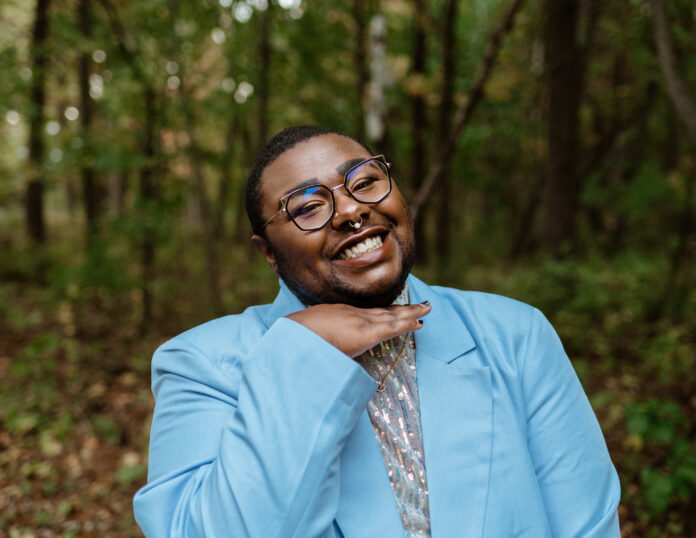Tristan “TK” Morton, the director of the LGBTQIA+ resource center, discusses pride programming and the inspiration for this year’s theme
By EMMANUEL FONSECA — features@theaggie.org
Lea este artículo en español.
May is UC Davis’s Pride Month, an annual tradition dedicated to bringing visibility and educating people on the lives of LGBTQIA+ individuals. UC Davis Pride centers around building a safe space for the queer community and is a movement that affirms the existence of queer people and brings the community together to partake in a celebration of self-expression.
This year’s theme, “Rage and Resilience,” takes us back to the origins of Pride, which began at the Stonewall Inn in 1969, according to Tristan “TK” Morton, the director of the LGBTQIA Resource Center at UC Davis. Morton supervises, leads and manages services supporting the success and retention of queer students of color through center resources.
“With the rise of anti-trans legislation and anti-LGBTQIA legislation,” Morton said, “as well as from the fascism we have seen not only across the country but on our very campus […], our team came together and decided we wanted to focus on rage and resilience because we know that, as a community, we are really resilient and have every right to be angry.”
At the Stonewall Riots, New York City police raided the Stonewall Inn, a gay bar that served as a safe haven for the local queer community. Continuous raids of gay bars across the city that were heavily rooted in the vilification and criminalization of racialized queer folk influenced social unrest among community members and sparked a six-day protest.
At the forefront of this movement were Black and Brown trans women who advocated for equity and recognition for LGBTQIA+ individuals and rejected harmful ideas that plagued the everyday lives of queer people of color.
The Stonewall Riots remain important to LGBTQIA+ history. One year after the monumental social movement, activists organized the first gay pride parade, a tradition that is still celebrated today.
“A lot of the focus in this year’s theme is honoring that history, the rage and the fight we have had as a community, specifically in this country,” Morton said. “At the end of the day, no institution in this country was made for trans people by trans people. We want to support LGBTQIA people in their rage and bring queer and trans joy to our community.”
UC Davis Pride serves to honor the legacy of rage and resilience of queer and trans communities in the face of oppression. With this year’s pride theme, the community aims to acknowledge the struggles and hurdles queer folks have historically overcome to make it to this moment in history.
Pride is a commitment to solidarity among our most marginalized community members, and this month, in particular, is dedicated to celebrating those who have faced adversity for trying to live their true and authentic lives.
While Pride is generally celebrated in June, UC Davis recognizes Pride during the month of May due to normal campus operations ending in June with the end of spring quarter. LGBTQIA+ Resource Center staff, campus partners and the volunteer Pride Month Planning Committee are committed to supporting queer communities by organizing a month of programming with workshops and events.
“A couple programs I want to highlight happening in May [are] a new student group that is hosting a ‘Gayme Night,’ which aims to center and support queer men and masculine folks within our center and space to connect with one another,” Morton said. “Another event the center is collaborating on [with Asian & Pacific Islander Queers (APIQ)] is Queer Prom, a space where students are able to be in a formal space as their authentic self. I believe this is a great way to demonstrate resilience. Other events are queer and trans mixers, movie nights, voguing class and workshops.”
Organizers of UC Davis Pride hope people realize community and togetherness are vital for the joy of queer and trans people and that challenging yourself to open your mind is the first step to a bigger conversation.
Written by: Emmanuel Fonseca — features@theaggie.org









